Right from a happy tummy to clear skin, basil leaves work wonders for our mind and body. Let’s have a look with Pritish Kumar, at how basil benefits your health, and some easy recipes to add basil to your diet!
Basil (Osmium basilicum) is a sacred and remarkable herb loaded with numerous health benefits. The term ‘basil’ comes from basilikhon, an ancient Greek word that means royal. With over 60 varieties, including sweet basil, holy basil, lemon basil, curly basil, among others, now this wonderful herb is grown all over the world.

Many people also plant it in their kitchen gardens so that they can fetch a handful when needed. And most Indian households worship basil (Tulsi) and have a space dedicated for it near the entrance of their homes. Also, sweet basil is integral to many cuisines, such as Indian, Thai, and Italian. Right from immunity to gut health, this fragrant herb can work wonders. So, let us take a look at some of the best basil benefits!
Here Are A Few Basils Leaves Benefits
1. Reduces oxidative stress
Basil is a powerhouse of antioxidants (free-radical scavengers). These compounds, as the name suggests, combat free radicals found in your body. Studies have elaborated free radicals as notorious elements that cause significant damage to the cells and put you at an increased risk of many health complications, such as heart disease, cancer, diabetes, and arthritis.
Also, basil has flavonoids, which boost your immune system, slow down the effects of ageing, and protect your cellular structure from damage.
2. Helps in preventing cancer
Although holy basil is quite different from sweet basil (what we use in most of our recipes), it contains phytochemicals. These are bioactive plant compounds that shield you from various cancers, such as skin cancer, lung cancer, oral cancer, and liver cancer.
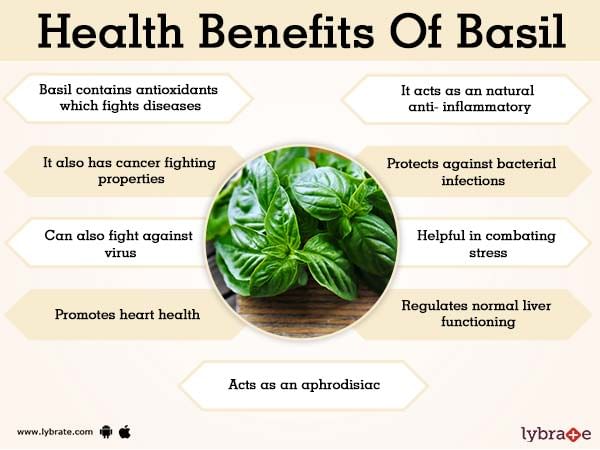
Basil also slows down the spread and generation of cancerous cells. The American Institute For Cancer Research has conducted several studies to strengthen these claims.
3. Benefits digestion
Sweet basil contains eugenol. This chemical compound has anti-inflammatory properties that ensure that your digestive tract is healthy.
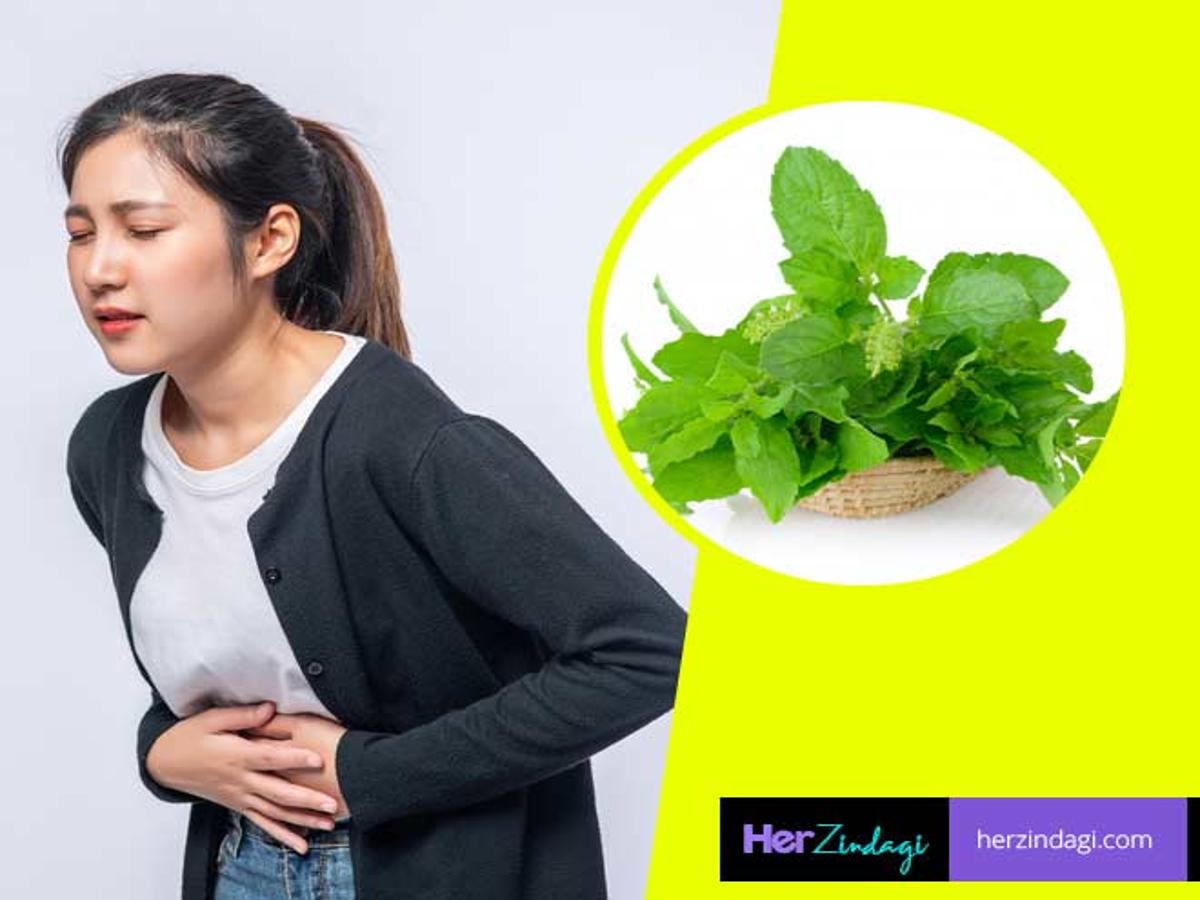
Basil benefits your digestive and nervous system while ensuring that you have optimal digestion and a proper pH balance in your body. Basil also relieves constipation by acting as a bulk-forming laxative.
4. Offers excellent skin benefits
Basil contains powerful and healing essential oils that cleanse your skin from deep inside. And, if you have oily skin, it is a saviour for you. Camphene, a constituent in basil, helps it act as a toner and thus helps in removing surplus oil, dead cells, and dirt that blocks the follicles. It even works on intractable blackheads and whiteheads.

It also eliminates free radicals that damage the skin making it look old and tired. All you need to do is make a thick paste with a handful of basil leaves, sandalwood powder, and rose water. Apply this pack to your face and neck, wait for 15 to 20 minutes, and wash it with cold water.
If you have an acne problem, the antimicrobial and anti-inflammatory properties of basil and basil oil will also help you prevent it as shown in this study.
5. Helps in diabetes management
If you have diabetes, add basil to your diet for sure. It slows down the process of sugar release in the blood while helping you with diabetes management.

According to many studies on animals and humans, holy basil can also help counter the other health complications associated with diabetes, including hyperinsulinemia (high amount of insulin in the blood), excessive body weight, etc.
6. Helps fight inflammation in the body
As basil has got potent anti-inflammatory properties and essential oils. It has been empirically proven that oils such as citronellol, linalool, and eugenol help cure a range of health conditions, including inflammatory bowel conditions, heart ailments, and rheumatoid arthritis. Moreover, consuming basil can also help treat headaches, fever, cold and cough, flu, and sore throat.
7. Helps you deal with depression
Basil contains adaptogen, an anti-stress substance. Research shows it helps deal with anxiety and depression while stimulating neurotransmitters that control energy and happiness-inducing hormones. So, sip a hot cup of tea with holy basil and sage brewed to perfection and see the difference.
8. Has got detoxifying properties
According to studies, basil safeguards our bodies against toxins by boosting antioxidants and increasing the activity of enzymes That clear off and neutralize free radicals. The free-radical scavenging also helps reduce the ageing of the skin and helps maintain the texture and elasticity of the skin.

Basil is a wonder herb for your liver, one of the most vital organs of your body. It detoxifies your liver and plays a crucial role in preventing fat deposition in your liver. Basil benefits your liver while taking care of your overall health as well. It removes toxins from the blood and purifies it.
9. Prevent heart ailments
You already know that basil contains eugenol. Various studies show that this chemical compound aids in blocking the calcium channels, thus lowering your blood pressure.
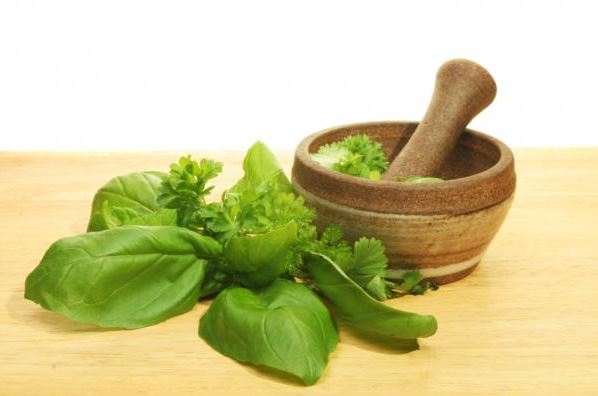
Also, the essential oils in basil reduce the level of triglycerides and cholesterol in your body. You will also find magnesium in this herb that improves blood circulation and allows your blood vessels and muscles to relax, preventing muscle cramps.
10. Prevents infection
Apart from all the goodness basil possesses, its antibacterial properties are among the most noted ones. It helps fight a range of infections, including skin allergies, urinary infections, and respiratory and abdominal infections. This research reinforces these assertions.
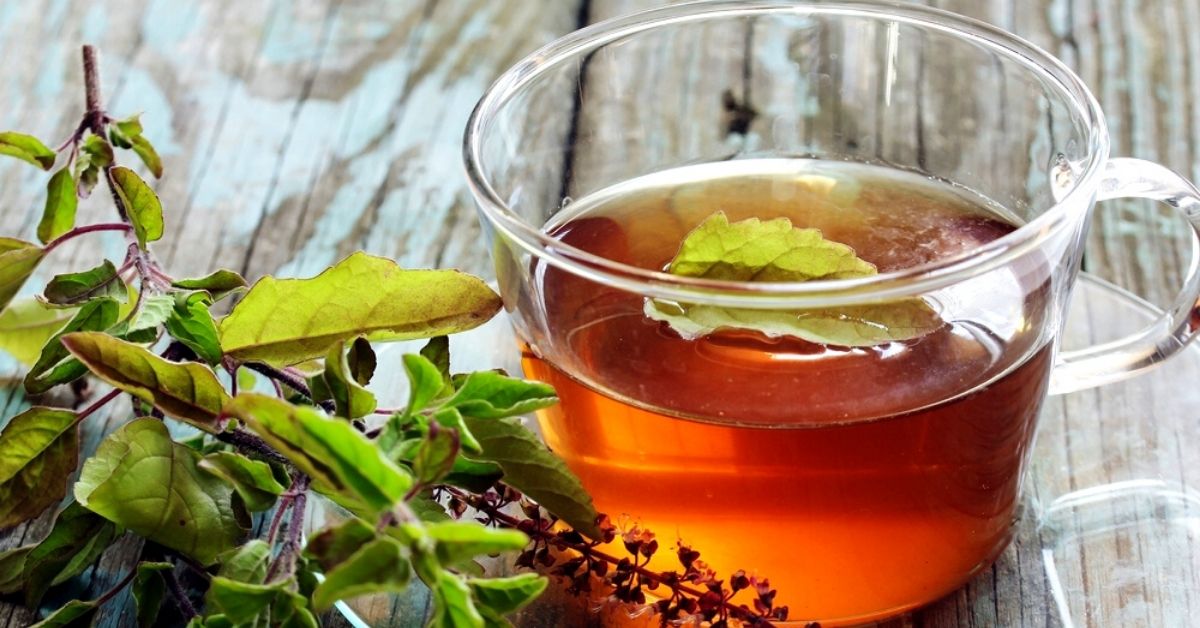
Growing your own basil is easy to do in a sunny spot, either in the ground or in containers. Then, you can conveniently harvest basil leaves whenever you need to add flavor to your next meal. Plus, growing your own basil costs so much less than buying fresh basil at the grocery store. And you can grow interesting varieties such as Thai basil and lemon basil, which offer exciting flavor differences. Whichever types of basil you choose to add to your garden, the key to getting the most of out this herb is knowing how to harvest basil leaves without damaging or killing the plant. Here’s the best way to harvest basil, plus how to store fresh basil.
When to Harvest Basil
Whether you start basil from seeds or buy a young plant, the best time to harvest basil depends on the size of your plant. You’ll know the time is right when you see that the plant has unfurled at least four sets of leaves. Your basil plant should be between 6 and 8 inches tall before you harvest its leaves. If you know when the plant was seeded, you can count on the basil being ready for harvest 60 to 70 days later.

How to Harvest Basil Leaves
Basil is a fast-growing herb that produces plenty of flavorful foliage. When you just need a few, the best way to harvest basil leaves is to pinch off each leaf at their base, where the leaf meets the stem. Start harvesting basil leaves from the top of the plant where more foliage will quickly fill in. If you harvest the bottom leaves first, the plant will likely look lanky and thin. For the most flavorful leaves, harvest them before the flowers appear.

How to Harvest Basil Stems
When you want to harvest more than just a few leaves at a time, you can remove full stems of basil by trimming the plant from the top down with a small pair of scissors. Aim to cut the stems about ¼-inch above a node (the point where the plant’s leaves and side shoots emerge). Remove no more than a third of the plant’s total height at a time so that you’ll be able to harvest more newly developed basil leaves in two to three weeks. To encourage your basil plant to continue growing more leaves throughout the summer, trim away the flower buds before they blossom. Basil cuttings are also easy to root in water to start new plants.
How to Store Fresh Basil
The best way to store fresh basil for a few days is to clip the sprigs and treat them like fresh cut flowers: place them in water at room temperature up to five days. Basil should not be refrigerated because it quickly turns brown in cold temperatures. You can also dry basil leaves and experience them any time of year. Freezing basil is another option if you’re looking to add basil at any time to soups, casseroles, breakfast skillets, and more.

How to Use Fresh Basil Leaves
Growing your own basil right outside your door is a must for enjoying this herb’s full flavor, either fresh or cooked. After harvesting basil, you can toss a handful of leaves on top of a pizza or garnish your favorite pasta dish. Also, try adding a basil leaf or two to lemonade to make a refreshing treat.
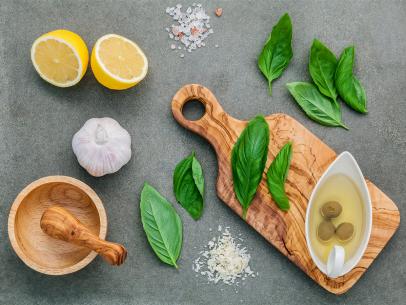
Reference
https://www.healthifyme.com/blog/basil-leaves/
https://www.bhg.com/gardening/vegetable/herbs/how-to-harvest-basil/

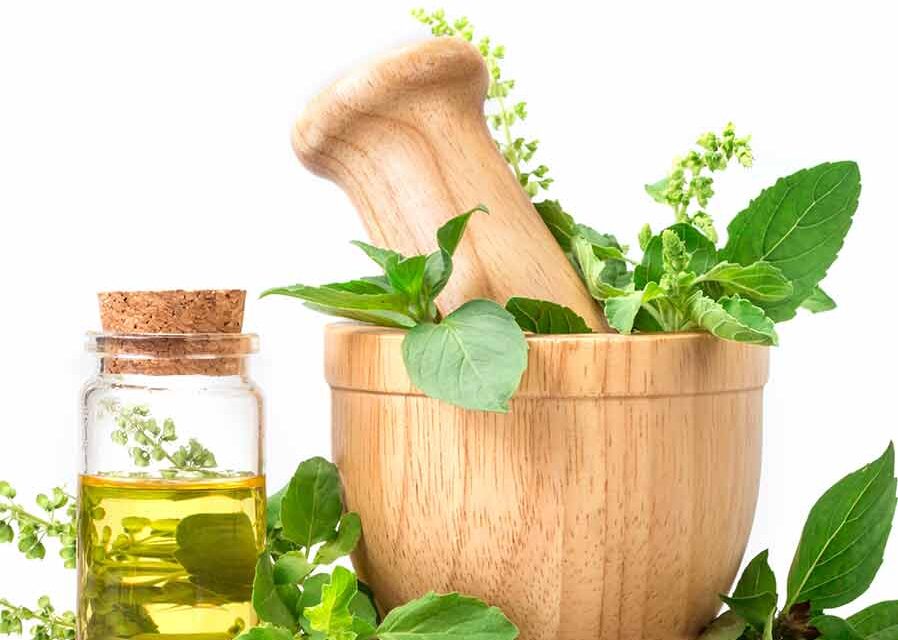











I agree with your point of view, your article has given me a lot of help and benefited me a lot. Thanks. Hope you continue to write such excellent articles.
I’m glad that I came across this website on Bing because it was exactly what I was looking for. I bookmarked it and added it to my favorites. I like your website, but you need to check the spelling on a few of your paragraphs.
Your article gave me a lot of inspiration, I hope you can explain your point of view in more detail, because I have some doubts, thank you.
You’re so awesome! I don’t believe I have read a single thing like that before. So great to find someone with some original thoughts on this topic. Really.. thank you for starting this up. This website is something that is needed on the internet, someone with a little originality!
Wow, this blogger is seriously impressive!
I appreciate your creativity and the effort you put into every post. Keep up the great work!